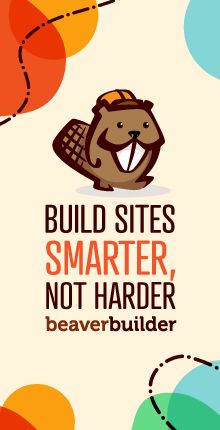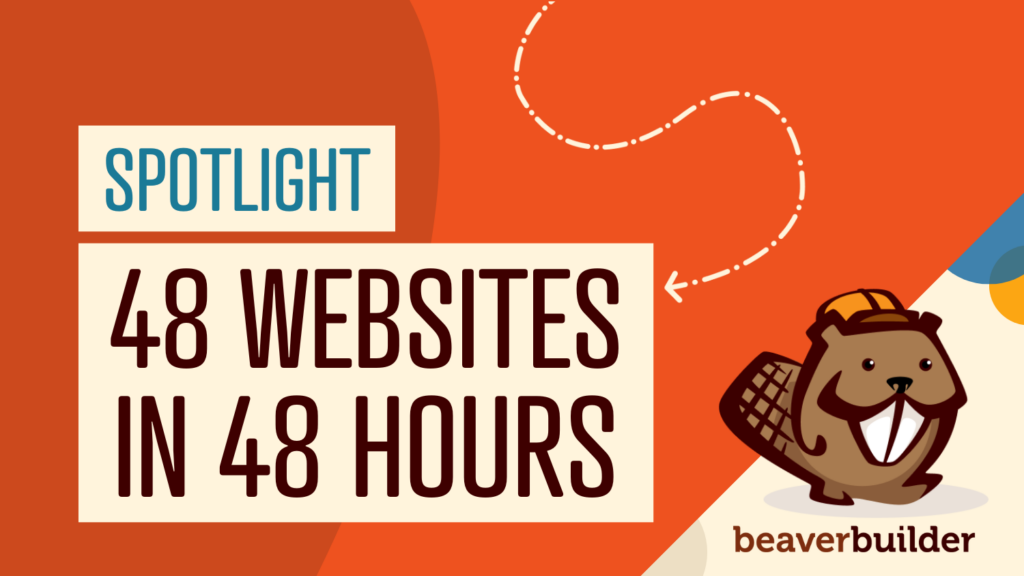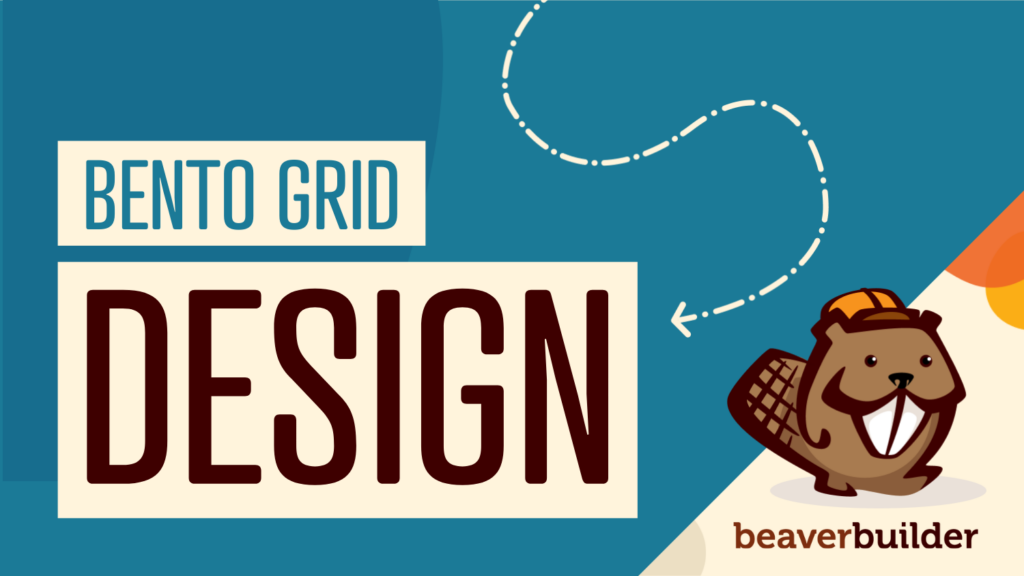
Make Your WordPress Site Fast as *$#@!
Wear and tear is inevitable. Shoes, cars, tools, homes, and everything else degrades over time. Well, software is no different. Ever notice how a four-year-old computer just doesn’t have the same pep in its step like when it was new? Or, how that contacts app on your phone seems to get bogged down more and more over the years? As much as I love WordPress, it suffers from the same problem. But don’t fear! With a bit of regular maintenance, you can make your WordPress site fast as *$#@!
Why Speed is Important
A fast website is extremely important. A study by Akamai and Gomez.com revealed that almost half of all web users expect a page to load in 2 seconds or less. Slow loading pages can detract visitors from your blog before they even get there. Google also factors site speed into it’s ranking algorithm. All things being equal, Google will favor a faster site over a slower one.
We’ve established that faster websites are better, so how do we speed up your WordPress site? Out of the box, WordPress is very fast and efficient software. The problem is when WordPress gets bogged down through years of posting, commenting, adding/removing plugins, uploading images, changing themes, and just blogging in general.
Utilize a caching plugin
If your blog isn’t already running a caching plugin, this is going to be the best way to lower your page load times. Period. Blogs are dynamic; new articles are written, side bars change, and comments are made. Each time WordPress serves up a blog post, it has to check for all of these changes.
A caching plugin is a very smart piece of software that saves, or caches, a rendered copy of all of your pages. Anytime a page is requested, the caching software does an efficient “quick check” for changes. If nothing has changed (which is most often the case), it will serve up the cached version of the page instead of building it all over again. This is paramount if your post “goes viral.” A blog without caching won’t survive being on the front page of Reddit or the likes.
So, which plugin should you choose? There are 3 big players: WP Super Cache, W3 Total Cache, and Quick Cache. The first two plugins are very comprehensive and, frankly, a bit difficult to configure. But, if you know what you’re doing and set them up properly, they are the most performant. W3 Total Cache is our main go to, and WP Super Cache is our go to for multisite installs.
If you just want something easy, a “set it and forget it” solution, try out Quick Cache. It does 90% of what the other two do but with minimal setup or technical knowledge required.
Setup a CDN

CDN stands for Content Delivery Network. CDNs are networks of super-fast web servers that are strategically placed around the world. Most folks host their blogs on a shared server (which is fine), but what if your server is in New York and your visitor is in California. Furthermore, what if your visitor is in South America or Europe!? The farther away your visitors are from your server, the slower the pages will load. A CDN has multiple redundant servers placed throughout the world so your content will always be served by a box in the general area of your visitor! Also, CDNs generally have huge bandwidth pipes that can transfer information immensely faster than most shared hosts can.
Setting up a CDN is a bit tricky, and beyond the scope of this article, but the easiest option will be CloudFlare (note: CloudFlare’s RocketLoad feature can cause conflicts with Beaver Builder, so be sure to turn that off). They offer a free CDN service and a WordPress plugin that makes it one of the simpler CDNs to configure. CloudFlare also has a suite of security features that are included with their free service. Honestly, Cloud Flare is one of the best deals I have ever found. The page load speed is drastically faster after switching on CloudFlare, especially on image heavy sites! I can only imagine the speed increase for our friends across the pond or geographically distant from the original server.
For a more comprehensive option that requires a bit more setup (and a fee), Amazon’s Cloud Front is another very good CDN option.
Keep Your Database Clean (Yeah, I’m talking about those spam comments)
WordPress stores all of your blog’s information in a database. WordPress can handle huge amounts of data, but as your database grows, it will inevitably slow down. One of the common causes of a bloated database is spam comments. We all have this problem. WordPress comment spam is insidious and a fact of life. But, there are a few things that can help.
First, if you’re not already using Akismet, use it! Akismet was created by Automatic (the company behind WordPress) and it’s amazing at screening out spam comments. Anytime a comment is left on your blog, Akismet will cross check with their database to ensure the comment is legitimate. If it’s not, the comment is dropped automatically and you’ll never know it existed.
But, what if you didn’t know about Akismet, and you already have hundreds, maybe thousands, of spam comments sitting around in your queue? Unfortunately, Akismet is a spam preventer and won’t be able to help. But, there is another handy plugin that will aid in removing all the old spam comments: WP Comment Clearer. It will still require some work, but this plugin makes the process of removing spam comments much quicker.
Another big perpetrator of database bloat is post revisions. WordPress is great about keeping revisions; too great sometimes! I looked back over some of my old blog posts and found several with 30+ revisions! The plugin Revision Control will allow you to set the number of revisions that can be saved and will help keep that database lean.
Don’t be fooled by feature bloat. Find a well-coded, light, theme.

Theme developers are starting to realize the benefit of releasing lighter themes. But, consumers still equate features with value and the all-in-one mega themes generally still dominate the Top Theme lists. While these mega themes are quite cool considering all they are capable of, all of those features equate to lost speed.
We know this all too well at FastLine Media as we offer a WordPress template customization/installation service. We’ll pick a handful of templates and let our clients choose their favorite one. Then, we’ll install and customize the template for their brand and business. After working with our first 10-20 WordPress themes, we were fed up with all of the feature bloat and unnecessary/confusing options that seemed prevalent in every premium theme. This was one of the reasons we created the Automator Theme.
It can be tough to hunt down the smaller shops that are creating simple modern themes. A few of our recent favorites are Elegant Themes and UpThemes, but I am sure there are tons of others.
Clean Out Old Plugins
I mentioned that WordPress is very fast and efficient software out of the box. The same can not be said for plugins. When it comes to plugins, one bad apple can bring your whole site to a crawl. What to do you ask? The first task is to identify which plugin(s) is causing a slow down. One way to do this is to disable all of your plugins, then enable them one by one, while checking your site, to see which one causes the slow down.
But what if you have a blog with lots of traffic and lots of plugins? It would be a bad idea to disable all of your plugins on a live site full of visitors. Don’t worry, there’s a plugin for that =D — have a look at P3 (Plugin Performance Profiler). P3 will analyze the overhead from each of your plugins and spit out several charts and graphs that help pin down the bad apple.
Honorable Mentions
These suggestions didn’t warrant their own section, but they are worth mentioning.
Choose a Good Host
Switching your web host is admittedly a tedious process. For that reason alone, this suggestion lands in the honorable mentions. But, if you’re not phased by the thought of transferring your WordPress install, moving your site to a modern web server can significantly improve page load speeds.
Compress Images
Compressing images can make a huge difference in page load times, especially for image heavy sites. I assume most of us are familiar with ‘Save for Web’ in Photoshop and understand the basics of image resolution and cropping. One great resource on this front is a plugin called WP-Smush.it. WP-Smush.it will automatically losslessly compress your images as you upload them to WordPress. I have seen it shave 10-20% off an image’s file size, even after it came out of Photoshop! Personally, I run it on every WordPress site I maintain. I see no reason not to.
Optimize Your Database
We mentioned keeping your database clean and lean, but you can also optimize the data that is already there. The plugin WP-DBManager makes optimizing your database a breeze. It also has great backup/restore functionality as well!
In Closing
A faster WordPress site will attract more visitors and keep them coming back more often. Making your WordPress site faster is a process of identifying what is slowing down your site, then taking the steps to fix that problem. If you have a relatively new blog that is running an old/sluggish plugin, optimizing your database probably won’t help. You have to identify the problems that are specific to your setup and fix those first. Of course, if you’re overwhelmed at the thought, feel free to drop us a line. We’re always happy to help!
What steps/changes have you made on your blog to increase speed? Which of these suggestions had the biggest affect on your page load times?
Photo Credits: Peter Kim, John Wolff
13 Comments
Related articles
Best WordPress Black Friday Deals (2024)
Hey Beaver Builders! Are you looking for the best WordPress deals for this holiday season and Black Friday? We reached…
48in48 Spotlight: Beaver Builder’s Nonprofit Website Builder
For the past ten years, Beaver Builder has been the go-to nonprofit website builder for 48in48. This incredible initiative brings…
Bento Grid Design in WordPress with Beaver Builder’s Box Module
The Bento Grid Design seamlessly combines clean lines, balanced proportions, and intuitive organization, drawing inspiration from Japanese bento boxes. Beaver...
Join the community
We're here for you
There's a thriving community of builders and we'd love for you to join us. Come by and show off a project, network, or ask a question.
Since 2014
Build Your Website in Minutes, Not Months
Join Over 1 Million+ Websites Powered By Beaver Builder.
 Free Beaver Builder Templates! Get started at
Free Beaver Builder Templates! Get started at 





[…] A fast website is extremely important. With a bit of regular maintenance you can make your WordPress site fast as *$#@! […]
Seems that Cloudflare is actually causing conflicts with BeaverBuilder. Perhaps you guys need to edit this article. 😉
Hey Mel! Yeah, you’re right. CloudFlare has a feature called RocketLoad that causes conflicts with Beaver Builder. I will go ahead and update the article. Thanks for the heads up. 🙂
Awesome article – thanks!
Thanks for the comment, Nick!
Wow. I’ve just installed W3 Total Cache (only checked the page cache button so far. More to explore) and WP-smush it plugins. Have noticed a HUGE difference in load times for my site (admittedly I was coming from a glacial base). For a non-developer like me (code talk makes me break out in a rash), this was an excellent tutorial. Many, many, many, many thanks.
Alright! Nice work. Glad the article was helpful. Performance tweaking can be a bit addiction. Be sure to take backups, too. I learned the hard way recently, messing with some of the low level server/caching stuff can cause problems! 🙂
Is there still conflicts with Rocket Loader™ of Cloudflare ? This feature really helps to process javascript.
When you test your page using https://gtmetrix.com/reports/www.wpbeaverbuilder.com/5nAOzOfN you find out that wpbeaverbuilder.com performs very poorly regarding static resources. I’m planning on buying your plugin but this static resources slow down is not good at all.
Hey, Diogo! Thanks for the comment.
I am not sure if this site is being actively maintained anymore, but the creator made an effort to make it as performant as possible. It scores very highly on most page speed tests: https://gtmetrix.com/reports/www.kilkennycounsellingcare.com/HyXwfBnA
Our site has a lot running behind the scenes, so it’s not the best example of what’s possible with Beaver Builder as far as performance is concerned.
I am currently using Tumblr as my default system. I kinda want something like what you have.
Congrats, I think I have to invest into an effective website.
Is there a new plugin you all suggest to batch delete comments (or another method)? WPCommentCleaner hasn’t been updated in 5 years. A client just passed along a site that has several thousand spam comments that I’d love to delete as efficiently as possible.
W3 Total Cache didn’t like my Beaver Builder columns. It would not display them 4 across. I installed WPRocket, and it seems to not affect BB layouts; however, it doesn’t seem as affective as W3.
WPRocket has a lot of other great features that will make your website load faster. It’s a great plugin for speed optimization.